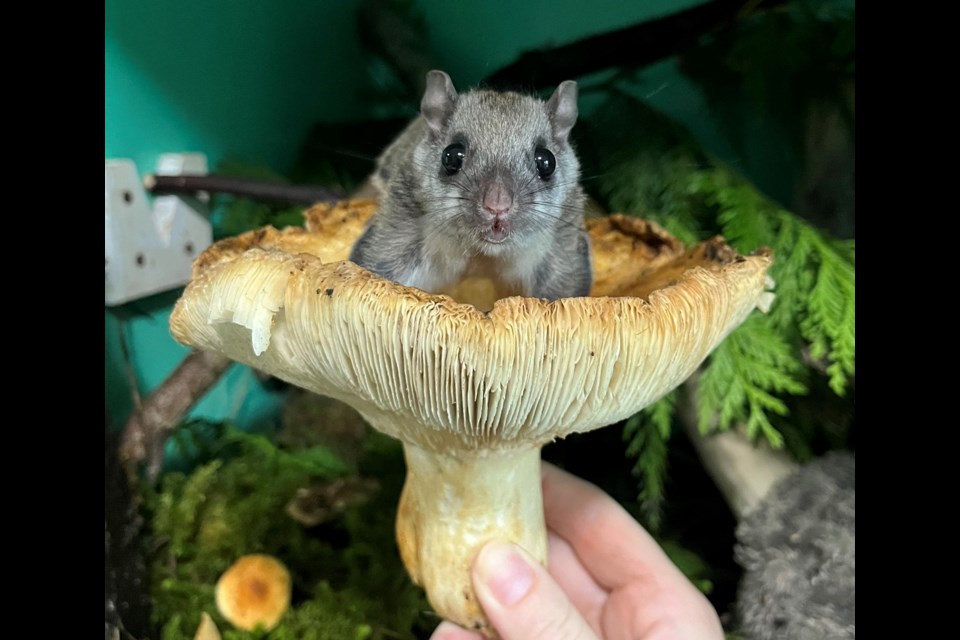Gibsons Wildlife Rehab Centre is in desperate need of a holiday miracle.
“Or someone to win a big lottery and donate a million dollars,” says Irene Davy, who started the centre with her late husband Clint 36-years ago.
The rehab centre, which has helped more than 11,500 distressed wild birds and mammals on the Sunshine Coast, is scheduled to close at the end of December due to the rising costs of everything, from feed to supplies.
Davy says like many non-profit organizations, donations have not kept up with the rising cost of living. To that end, the centre is closing at the end of this month, so is no longer accepting any more injured wildlife.
“If we could just raise enough money to buy some property, but with the way the economy is, people need to worry about food and accommodation first,” said Davy. “Like many places, we have been affected by the economy, as not many donations are being received and the cost of food and supplies for the wildlife is constantly increasing.”
The closure will be a huge blow to animal lovers on the Coast, who arrive at the centre at all hours of the day and night, bearing fragile bundles or boxes of injured critters -- everything from an owl hit by a car, to a bird caught in sticky fly tape, to a raccoon with a paw trapped in a rat trap, to a malnourished flying squirrel.
At their busiest, the centre can house up to 30 injured birds, not including babies, and 14 mammals. And, while the centre doesn’t have a permit to house what are considered “dangerous animals,” over the years, there have been emergency exceptions to the rule, including an underweight bobcat with parasites and several juvenile bears. Bear cubs needing care are permitted to stay at the rehab centre until they’re well enough to be shipped to Critter Care Wildlife Society in Langley, one of just three licensed bear rehabilitation facilities in B.C.
“People think bear cubs are just like big puppies, but they’re strong and they have claws and they are a lot of work,” says Davy.
Initially, Irene and Clint, as certified wildlife rehabilitators — and having the appropriate federal and provincial permits — looked after the wildlife in their home and in pens in their backyard. But later a trailer was purchased and transferred to their property, which is where wildlife is cared for now.
The centre started out with a handful of volunteers, but then grew to include three staff members and a much large number of volunteers — and Davy wants to thank each and every one of them for the hundreds of hours they’ve donated over the years.
Davy says since Clint passed away four years ago, her work has become more difficult than ever. She notes, Clint not only had a license that allowed him to care for injured wildlife, but also a gift for it.
“Even one or two local vets said he was so good with wildlife, he could make splints just like vets could,” says Davy. “He was a natural working with wildlife.”
Davy reiterated helping injured wildlife is not a hobby, but instead anyone who wants to care for hurt creatures, must be government-certified and willing to complete the endless mountains of paperwork that goes along with it.
“It's not just looking after wildlife. There's a lot of paperwork involved because you're dealing with the provincial and the federal government,” she says. “So, there's reports that have to be given to the provincial government and there are reports for each individual creature that comes into care.”
Davy has a dream of one day reopening the rehab centre, but with a bigger building and larger property, ideally located somewhere between Gibsons and Roberts Creek. Approximately five acres are needed, which would cost about $1 million, before anything is built on the property.
“But that’s not going to happen overnight, so I just need to close it off for now,” said Davy. “I just want the place to myself, without strangers showing up in the middle of the night and wandering around my yard. Without the constant interruptions with people coming to the door, I’m hoping it will be a nice peaceful, hopefully, existence.”
So, what’s going to happen now when someone finds an injured owl or raccoon and shows up at her door at 2 a.m.?
“They’ll just have to call the RAPP line.”
Report all Poachers and Polluters (RAPP) is a 24-hour government reporting system, which anyone looking for help with distressed wildlife can call toll free, at 1-877-952-7277.





